#Bai Juyi
Text
Who says the moon is heartless?
It's followed me a thousand miles.
Po Chü-i, Traveling Moon
#Po Chü-i#Bai Juyi#Traveling Moon#moon#moon quotes#a thousand miles#companionship#full moon#Chinese literature#Chinese poetry#quotes#quotes blog#literary quotes#literature quotes#literature#poetry#poetry quotes#book quotes
343 notes
·
View notes
Text
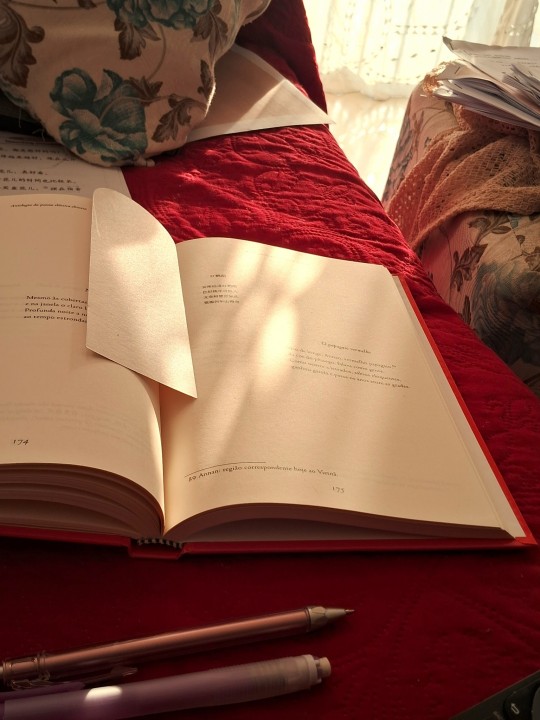
Book of Tang poetry (and messy piles of pages from New Practical Chinese Reader) on the couch in the sunset on a lazy Sunday afternoon
The book is open on 白居易 (Bai Juyi)'s 红鹦鹉 (Red Parrot).
There are many unknown characters for me and English translations I've found are a bit different from the Portuguese translation on the book, and on my very quick search I've already found criticism on them... so here's a translation of the translation:
The Red Parrot
Came from far, Annan*, a red parrot.
The color of peach, spoke like a person.
As happens to wise, eloquent scholars,
Got a cage and spends the years between bars.
*present-day Vietnam
#personal#poetry#chinese poetry#tang dynasty#bai juyi#白居易#translation#chinese poem#langblr#studyblr#chinese langblr
28 notes
·
View notes
Text
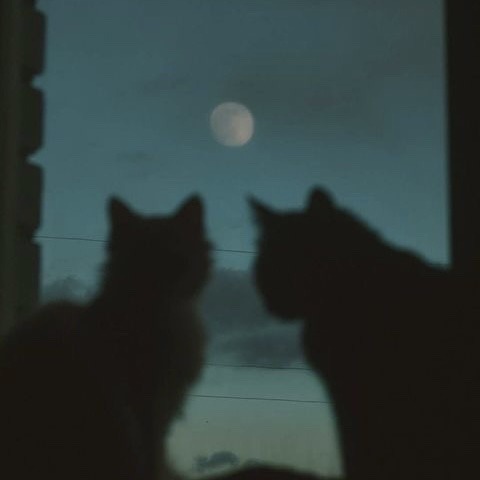

“𝑊ℎ𝑜 𝑠𝑎𝑦𝑠 𝑡ℎ𝑒 𝑚𝑜𝑜𝑛 ℎ𝑎𝑠 𝑛𝑜 ℎ𝑒𝑎𝑟𝑡? 𝐴 𝑡ℎ𝑜𝑢𝑠𝑎𝑛𝑑 𝑙𝑜𝑛𝑔 𝑚𝑖𝑙𝑒𝑠 𝑖𝑡 ℎ𝑎𝑠 𝑓𝑜𝑙𝑙𝑜𝑤𝑒𝑑 𝑚𝑒.”
—Bai Juyi
#poets on tumblr#dark academia#aesthetic#spilled poetry#words#spilled ink#spilled thoughts#19th century#vintage#love poem#dark acadamia aesthetic#dark academia books#renaissance art#renaissance#poetry#dark academia lovers#vintage classics#dark acdemia#sylvia plath#Bai Juyi
179 notes
·
View notes
Text
“The wildfire in the fields can’t be extinguished, the spring breeze blows and it grows again.” Wei Wuxian’s Spell (MDZS only) (Farewell on the Ancient Grassy Plain 赋得古原草送别 by Bai Juyi 白居易)
Before I proceed, I just wanna say that this was the poem that inspired me to take up translation. 😍😍. I learned and analysed it back in school, so when I read it in MDZS, I knew I had to make a post about it. Yes, I know I’m such a geek. Everyone wants to translate wangxian smut but I was aiming for this. But LOL the my translation never got there FML so here it is anyway.
If there was a list of “top 10 famous Chinese poetry”‘s online, this would definitely be it along with Li Bai’s 静夜思(Through the Quiet Night). In MDZS, Wei Wuxian uses this poem in Chapter 76 to animate the effigies. So just what does it mean and what is his relation to the novel?
This poem was written in the Tang Dynasty by Bai Juyi. In the poem, the author sends off his old friend on his journey , and bades him farewell.
There’s an interesting backstory to poem. Firstly, this is a “赋得” which means that this was a poem that the author wrote for exam purposes. 😂. So yes, this was his examination essay. The topic was “to bade farewell on the grassy plain”.
So the story is that the examiner Gu Kuang looked at his essay, then commented “米价方贵,居亦弗易 Chang An’s rice is expensive, it’s not easy to freeload! (this is a pun on the author’s name. He shortened the poet’s name to Ju Yi 居易, which means to stay for free)”. But as he read on, he was subsequently very impressed with the poem, particularly the famous line (which was used in MDZS) “野火烧不尽,春风吹又生 The wild fire in the fields can’t be extinguished, the spring breeze blows and it grows again.” And since then, the poem has been praised for the way it describes the grass full of life, its symbolism (the never say never ideal), the imagery and sadness when he sends his friend off.
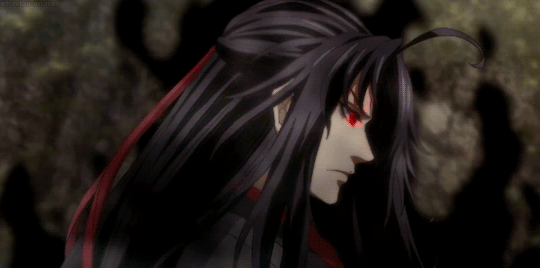
离离原上草,一岁一枯荣。
The ancient plains are filled with lush green grass, it withers and prospers every year
野火烧不尽,春风吹又生。
The wildfire in the fields can’t be extinguished, the spring breeze blows and it grows again. (This is the famous line/idiom)
远芳侵古道,晴翠接荒城。
The scent of spring grass from afar has invaded the ancient path, a sea of green has permeated the abandoned city
又送王孙去, 萋萋满别情。
I’m here to send my friend off, the lush grass is filled with my parting feelings.
ANALYSIS - with relation to MDZS
"野火烧不尽,春风吹又生 The wildfire in the fields can’t be extinguished, the spring breeze blows and it grows again,” is now a commonly used idiom to describes tenacity and grit; the grass that thrive again after it has been burned by wildfire.
When I first read this, I felt this poem was a shout out Wei Wuxian. He persevered when faced with adversity multiple times. And imagery of “spring grass” in this poem is particularly fitting descriptor of him; it’s full of life and adaptable to any circumstances. It even grows in the most barren of conditions, such as the ancient paths and the abandoned city. (Burial Mounds, I'm looking at you XD)
Secondly, the last line of the poem also reminds me of Lan Wangji. It gives off an image of someone sending off a friend, but he can’t send his said friend off the entire way, so he hopes the grass which have grown everywhere would do convey his feelings. isn’t that lwj when he realises Wei Wuxian has passed away the first time? :( Or perhaps that's Wei Wuxian's feelings when Lan Wangji and himself were on different paths (The Ghost path vs the orthodox Cultivator Path)
Additional Links:
Wei Wuxian's Spell - "Her Shy Charming Eyes"
More MDZS Meta
Poetry Analysis
62 notes
·
View notes
Text

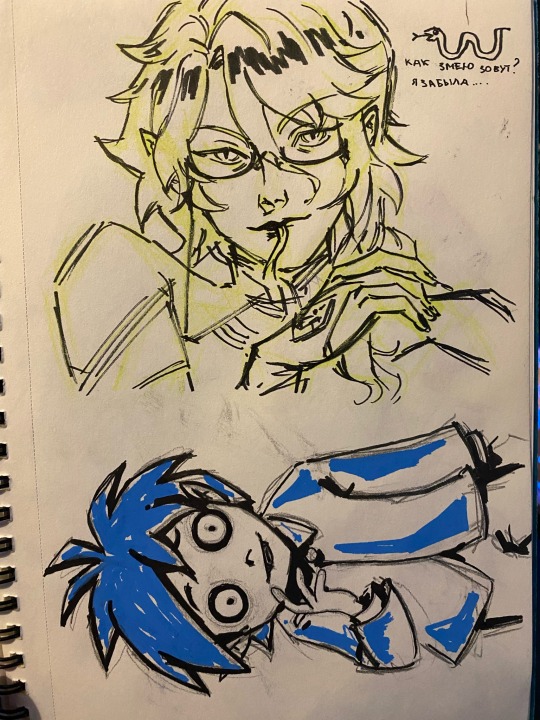

Dead inside Kaveh and other
9 notes
·
View notes
Text
night snow
I was surprised my quilt and pillow were cold,
I see that now the window's bright again.
Deep in the night, I know the snow is thick,
I sometimes hear the sound as bamboo snaps.
- Bai Juyi / Po Chu-i
夜雪 - 白居易
已讶衾枕冰
复见窗户明
夜深知雪重
时闻折竹声
12 notes
·
View notes
Text
至此千载后
传是何如人
人生未死间
不能忘其身
Up till now, thousands have tried to write down
What kind of great scholar they were.
I'll worry about that when I'm dead.
For now, I can't stop thinking of you.
source
8 notes
·
View notes
Text
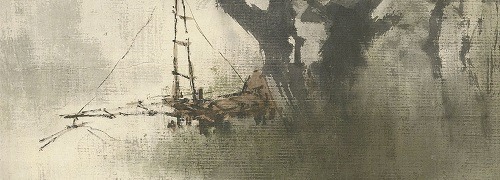
CONMOVIDO POR EL ESQUIFE DE SUZHOU AVERIADO
Se parten las pintadas trabes, las jambas rojas;
plantado ante la alberca paso el día suspenso.
Si el esquife que traje de Suzhou veo podrido,
¿no iban a decaer los miembros de este cuerpo?
Bai Juyi
di-versión©ochoislas
*
白居易感蘇州舊舫
畫梁朽折紅窗破 獨立池邊盡日看
守得蘇州船舫爛 此身爭合不衰殘
白居易
#Bai Juyi#literatura china#poesía de Tang#meditación#caducidad#tiempo#esquife#di-versiones©ochoislas#白居易
0 notes
Text
Losing a Slave Girl
Around my garden the little wall is low;
In the bailiff’s lodge the lists are seldom checked.
I am ashamed to think we were not always kind;
I regret your labours, that will never be repaid.
The caged bird owes no allegiance;
The wind-tossed flower does not cling to the tree.
Where tonight she lies none can give us news;
Nor any knows, save the bright watching moon.
Bai…
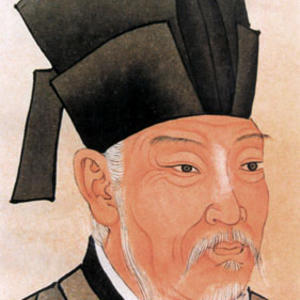
View On WordPress
1 note
·
View note
Text
A dragon will never be a god unless people themselves make it a god.
Po Chü-i, A Dragon in the Dark Lake
#Po Chu-i#Bai Juyi#A Dragon in the Dark Lake#dragon#Lunar New Year#Lunar New Year 2024#Chinese New Year#Chinese New Year 2024#Year of the Dragon#poetry#poetry quotes#Chinese poetry#quotes#quotes blog#literary quotes#literature quotes#literature#books#book quotes#text#words
14 notes
·
View notes
Photo
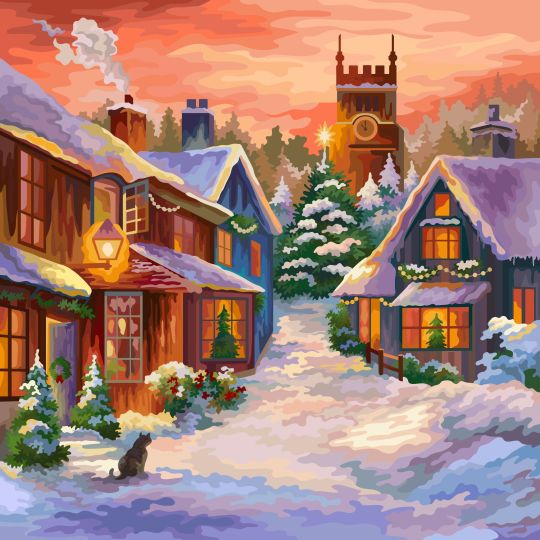
“The mountain road is hard to travel, the sun now slanting down,
In a misty village, a crow lands on a frosted tree.
I'll not arrive before night falls, but that should not concern me,
Once I've drunk three warm cups, I'll feel as if at home.”
― Bai Juyi
1 note
·
View note
Text
related to my post about Lianhua and Ah Fei’s names. I’ve been thinking, if Lianhua’s rebirth is described by the verse in the monk’s room 一念心清净,莲花处处开 cleanse and clear one’s heart, and lotus flowers will bloom everywhere, what would be a fitting verse to describe Ah Fei’s rebirth? Something to do with the wind, I thought, and Bai Juyi’s 野火烧不尽,春风吹又生 came to mind: the wild fire will never burn out, it is always reborn with the blowing of a spring wind
45 notes
·
View notes
Text
Blood of Youth Episode 1 - A Question to Liu Shijiu 问刘十九 by Bai Juyi 白居易
In Episode 1, Tang Lian sits on top of a carriage and quotes a poem to his enemies. “A Question to Liu Shijiu 问刘十九” is a poem that Bai Juyi 白居易 addressed to his friend Liu Shijiu 刘十九, whom he met in Jiangzhou. (There are only two poems addressed to Liu Shijiu).
This is a seemingly easy poem to understand but the richness of the poem lies in its contrasting imagery of the green wine, the red clay stove, the snowy night. It has been professionally analysed in the video below. It's worth watching it if you're interested to see how it's analysed by a professional. Because honestly, I don't have any professional credentials and I'm just being a nerd and I like analysing poetry for fun xD
youtube
绿蚁新醅酒,红泥小火炉。
The newly brewed rice wine is fragrant like green ants, the tiny red clay stove burns red.
(When the rice wine is newly brewed, it floats on the surface, forming a green shade. As the wine is delicate like ants, this is sometimes termed as ‘green ants.’)
晚来天欲雪,能饮一杯无?
It’s getting dark and it’s starting to snow, could someone have a drink with me?
33 notes
·
View notes
Text
I think the shot of Wei Wuxian and Jiang Cheng in the grass field after Lotus Pier burned is a reference to Bai Juyi's Grass poem, which is--hrrggfhh!!!
496 notes
·
View notes
Photo
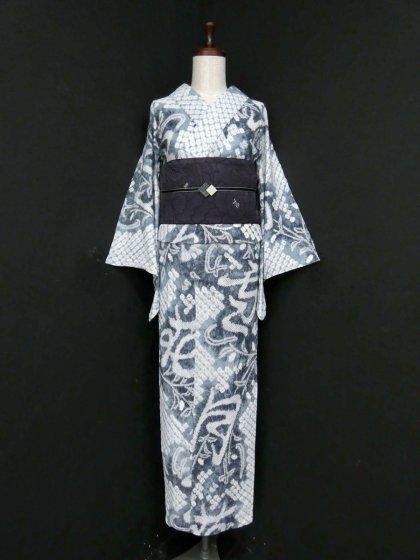
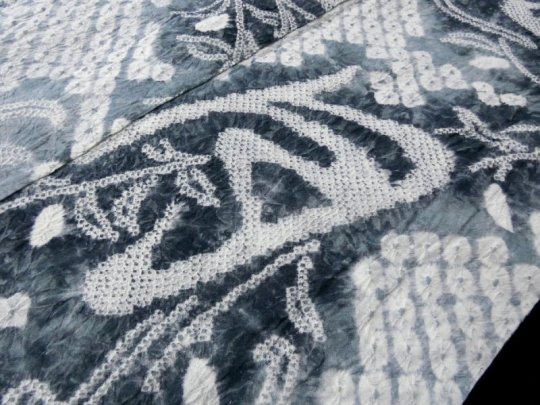
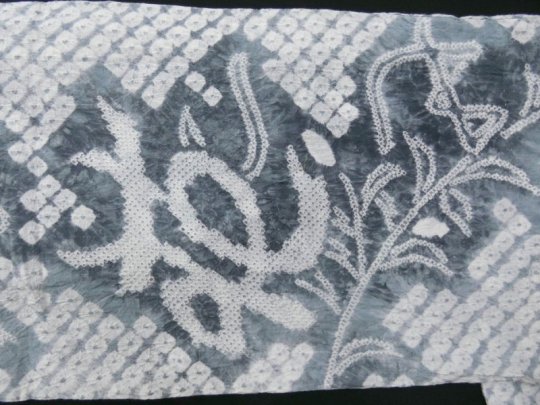
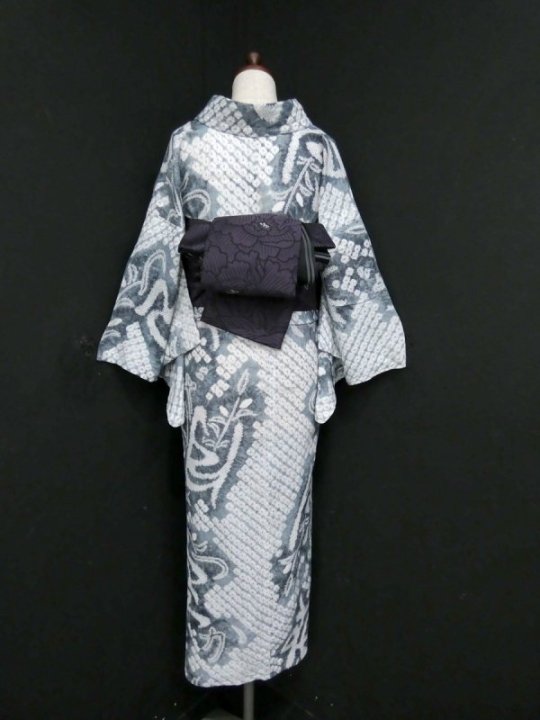
Refined shibori yukata, with kanji parable “setsugekka” ("Snow, Moon, and Flower").
It references a Chinese poem written by Bai Juyi (Tang dynasty) where the beginning of a verse goes “I remember you especially when snow, the moon or flowers are beautiful”.
During Edo period, this expression came to represent the passing of seasons (winter snow, autumn moon, spring flowers), and was a popular theme for ukiyoe prints series. Here is one, pretty litteral, by Sakai Hôitsu:
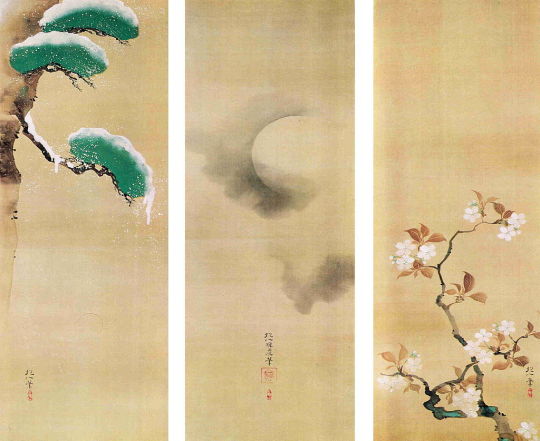
And here is another one, with famous poetesses embodying the concepts (from left to right: Sei Shônagon, Murasaki Shikibu, Ono no Komachi):
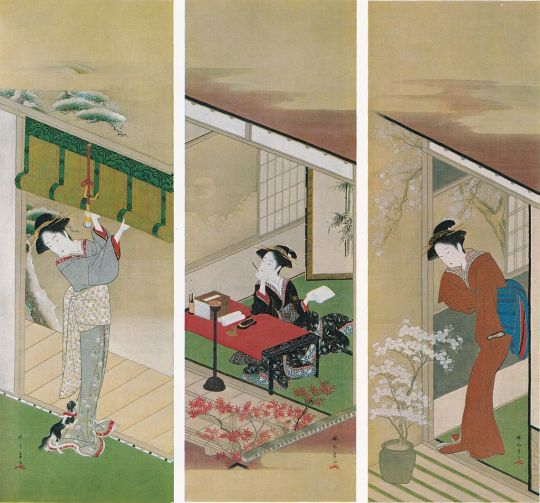
You can find more examples on Wikipedia :)
#japan#fashion#kimono#yukata#setsugekka#Snow Moon and Flower#kanji#yuki#snow#tsuki#moon#hana#flower#浴衣#帯#着物
314 notes
·
View notes
Note
Mind if I throw you a curve ball? I’m looking for Chinese writers/poets who were influential on Premodern Japanese literature besides Bai Juyi (aka Bo Juyi, Po Chü-i, Bai Letian, Po Letien, Haku Rakuten, etc.). Tang dynasty poets are pretty awesome but I need to branch out.
Here are a few that we came up with:
Zhuangzi (莊子, Sōshi): Zhuangzi, a Daoist philosopher and writer, influenced Japanese literature through the spread of Daoist and Zen Buddhist thought. His ideas about spontaneity and the unity of all things had an impact on Japanese poets and philosophers.
Tao Yuanming (陶淵明, Tōenmei): Tao Yuanming, a poet of the Eastern Jin Dynasty, was known for his pastoral poetry and themes of rural life. His influence can be seen in Japanese literature, particularly in works that celebrated the beauty of the countryside.
Su Dongpo (蘇東坡, So Tōhaku): Su Dongpo, also known as Su Shi, was a versatile Song Dynasty writer who excelled in poetry, prose, and calligraphy. His philosophical and literary works had an impact on Japanese literature, especially in the fields of poetry and essay writing.
Hopefully this helps!
137 notes
·
View notes